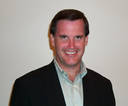
Joining the church does not automatically cause people to feel that they "belong." They need to feel welcomed and wanted once they’ve joined your church. They need to be recognized, affirmed and celebrated by your congregation. They need to feel special. As a small church, you may be able to do this informally but as your church grows, you will need to create some initiation rituals that say publicly: "You are now one of us!"
Of course, baptism for the new believers is an event that obviously fits this category. Our regular baptisms are always big celebrations, with a lot of laughter, applause, and shouts of joy. We have a professional photographer take a picture of each person just before he or she is baptized. Later, we present those baptized with a photograph of their baptism and a baptism certificate together in beautiful leather binding that people are proud to display.
When Saddleback was much smaller, we used to rent the Mission Viejo Country Club every three months and have a new member’s banquet. Each new member would be recognized and would give a two-minute testimony before those attending. I never made it through one of those banquets without crying after hearing the touching stories of changed lives. Older members would pay for the meals of the new members.
For years, on the fourth Sunday night of each month, Kay and I would host an informal coffee meeting in our home called the "Pastor’s Chat." It was simply an opportunity for new members and visitors from the previous month to meet us face-to-face and ask any questions they had. We’d place a sign-up sheet out on the patio before Sunday services and the first 30 to sign up would get to come. The chats would last from 7 to 10 p.m. This simple act of hospitality brought in hundreds of new members and established many relationships that Kay and I cherish today. Hospitality grows a healthy church.
There are many ways you can make members feel special such as sending cards on their birthdays, recognizing their first anniversaries as members, recognizing other special days (births, weddings, anniversaries, graduations, and achievements) in your newsletter, featuring a testimony in each service, holding staff receptions, and returning a "We prayed for you" note in response to a prayer request.
The point is this: People need more than a warm handshake at the end of a service to feel like they really belong.
Create opportunities to build relationshipsThe importance of helping members develop friendships within your church cannot be overemphasized. Relationships are the glue that holds a church together. Friendships are the key to retaining members.
Lyle Schaller has done extensive research that shows that the more friends a person has in a congregation, the less likely he or she is to become inactive or leave. In contrast, I once read about a survey where they asked 400 church dropouts why they left their churches. More than 75 percent of the respondents said, "I didn’t feel anyone cared whether I was there or not."
It is a myth that you must know everyone in the church in order to feel like a part of a church. The average church member knows 67 people in the congregation, whether the church has 200 or 2,000 attending. A member does not have to know everyone in the church in order to feel like it's "my church" but he does have to know some people!
While some relationships will spontaneously develop by chance, the friendship factor in assimilation is too crucial to leave to chance. You can’t just hope members will make friends in the church. You must encourage it, plan for it, structure for it, and facilitate it.
Think relationally! Create as many opportunities as you can for people to meet and get to know each other. Since so many church meetings are simply lectures ("Sit still while I instill!"), members can walk in and out of church for a year and still never really develop any friendships. Try to include some kind of relational activity in every congregational meeting. It may be as simple as saying, "Turn around and introduce yourself to one person and find out something interesting about them."
Since most people have a hard time remembering names, especially in a larger church, use nametags as often as you can. Nothing is more embarrassing than not knowing the name of someone you’ve seen at church for years.
Although we’ve used all kinds of events to build relationships within our church family (supper clubs, sports, game nights, picnics, etc.), by far the most effective tool for cultivating new friendships has been our use of weekend retreats. Consider this: A person spends more time with other members during a single 48-hour retreat than they will spend in Sunday mornings throughout a year. If you are a church planter and you want to develop relationships quickly in your church, take everybody on a retreat.
Keep communication lines openIt’s vital that clear lines of communication are established within your church. People tend to be down on what they aren’t up on. Informed members are effective members. Uninformed members, regardless of talent, can’t do much. Build redundancy into your communication system. Develop a dozen different channels for disseminating congregational information.
At Saddleback, we use anything we can to get an important message out to the congregation: fax machines, voice mail, video, newsletters, cassette tapes, prayer chains, CARE callers, newspaper articles, postcards, and the Internet.
Just as important as the staff-to-congregation communication is the congregation-to-staff communication.
It must flow both ways. Proverbs 23:27 says, "Be sure you know the condition of your flocks, give careful attention to your herds." The most important flock is God’s flock so we pay special attention to what is happening with it.
There are three tools we use to monitor the heartbeat of our church family:
1.
The welcome card. This is an incredible communication tool considering its simplicity. Anybody can write me a note at anytime. Because our members know that we read these cards and take them seriously, we have a continuous flow of information coming in. It requires a team of volunteers to process all the cards we get, but it allows our pastors and staff to stay "close to the customer."
2.
CARE callers. CARE stands for "Contact, Assist, Relate, and Encourage." This lay ministry calls through the church directory on a systematic basis to find out what’s happening in the lives of our members. They call in the evenings and ask three questions: 1) How are you doing? 2) Do you have any prayer requests? 3) Is there anything you’d like for us to report to Pastor Rick or a staff member? Each CARE caller takes notes on a form to ensure accurate information is recorded. Then they update the people they’ve called on any coming events or church news. It’s just another way of keeping in touch with our members and saying, "We care."
3.
Lay pastor reports. These are the written reports we get back from the lay pastors who lead our small groups. They report on the health of the group and what is happening in the lives of individuals.
In conclusion, I want to stress the importance of continually emphasizing the corporate nature of the Christian life to your members. Preach it, teach it, and talk about it with individuals. We belong together! We need each other. We are a family! We are connected. We are joined together as parts of one Body.
Rick Warren is the Pastor of Saddleback Church in Lake Forest, California. He is the author of the "Purpose Driven Life." This article was written 6-21-06, in his "Ministry Toolbox" newsletter #264. For more go to
Pastors.com.










 C
C




